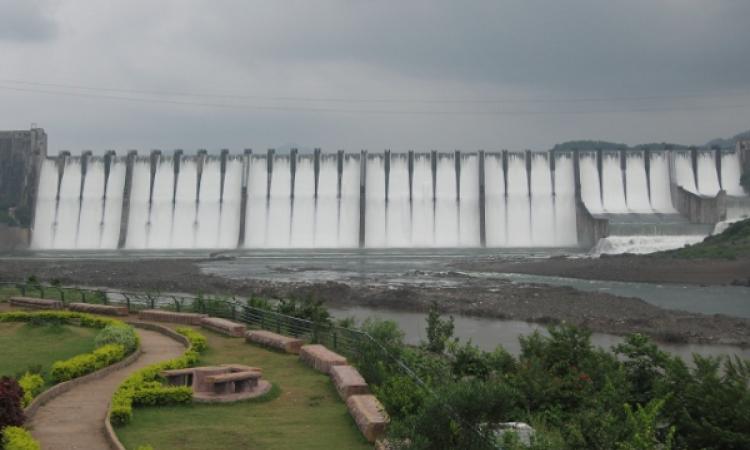
Gujarat government culls protest against weir on the Narmada river
Tribal groups and environment activists planning a hunger strike against the proposed Garudeshwar weir on the Narmada river were put under house arrest on October 31, the birth anniversary of freedom fighter Sardar Vallabh Bhai Patel. The protest was culled in view of the foundation laying ceremony of Sardar Patel's statue by the state chief minister Narendra Modi. As per activists, the construction of the Garudeshwar weir, about 12 km downstream of the Sardar Sarovar Dam, has begun without any social or environmental impact assessment, public consultation and environmental clearance from the environmental sub-group of the Narmada Control Authority. The weir will have a 20 km long reservoir and will affect 70 villages.
High air pollution in Goa's mining zone: study
The Indian School of Mines (ISM), Dhanbad has found high air pollution levels in five talukas of the state where iron ore mining is rampant. ISM, which was commissioned the study by the Ministry of Environment and Forests following complaints of illegal mining, surveyed 105 mines. It found that the export of more than 45 million tones of iron ore from the state was too high and is planning to recommend a cap on the excavation of the ore. The study also found considerable deterioration of air quality on the mining transportation route as the carrying capacity of roads to mining areas is less.
Thanks to floods, rice bowl of Assam turns into wasteland
Dhubri district, that supplied rice to other parts of the state not very long ago, now depends on them for its food grain requirement. Deforestation in neighbouring Meghalya brought down silt in rivers which were desposited in paddy fields during floods, rendering it uncultivable. About 85,000 hectares (ha), including 22,000 ha of cropland in the district, has been affected by floods. About 12,000 houses were damaged by floods in more than 650 villages and about 17,000 cattle died. However, there has been no government help since, forcing people to migrate to cities.
Arsenic contamination may cause resistance to drugs for killer parasitic disease: study
Researchers at the Universities of Dundee and Aberdeen have found that consumption of arsenic-contaminated water can create resistance to drugs used to treat Leishmaniasis, the second largest parasitic killer in the world. The drugs used to treat the infection are known as antimonial preparations. The study found that naturally occuring arsenic in the ground water of Bihar, where 90% of India's leishmaniasis victims stay, is the main counter to the antimonial treatment. By the end of the 20th century, the effectiveness of the drug in treating the disease in the Bihar region was so low that its use was no longer recommended.
Hydro project affected people in Manipur demand return of submerged land
Fishermen and farmers affected by the Loktak hydro-electric project have demanded the return of land submerged by the 105 MW project as the authorities have failed to deliver on their promise of adequate power supply, water for irrigation and flood control. In a public consultation held in Imphal, the people also demanded community control of the Loktak wetland for public survival and livelihood benefits and the repeal of Manipur Loktak Lake Protection Act, 2006 that is said to be anti-people. They also demanded that the government should get prior informed consent of all indigenous communities dependent on the Loktak lake for any new project in the wetlands.
This is a weekly roundup of important news from October 28-November 3. Also read last week's policy matters updates.
/articles/gujarat-government-arrests-activists-protesting-narmada-weir